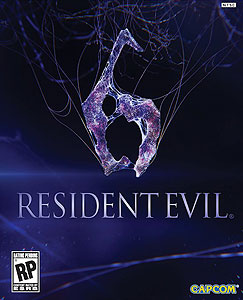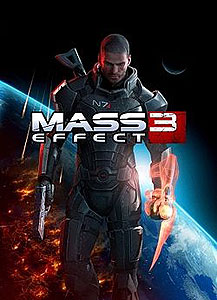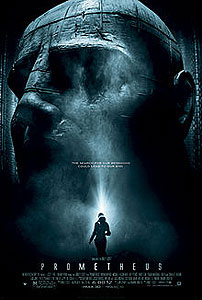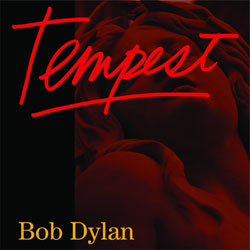Best Of 2012: Paul Casey
Published on December 19th, 2012 in: Best Of Lists, Comedy, Gaming, Horror, Movies, Music, Science Fiction |Another year, another apocalyptic prophecy. Unless 2012 ends with the biggest shock in human history, though—that conspiracy theorists are actually right about something—this year has been a pretty enjoyable one for creative media. The following list is simply a reflection of some of the good things that happened over the last twelve months.
Video Games

Capcom, Resident Evil 6
When Resident Evil 6 was released at the beginning of October, one of the common complaints from critics and the general comment board public, was that it was not scary. It had lost its horror credentials and was focused solely on providing large Michael Bay action set pieces. It is unclear why the stodgy tropes of the early games are required for Horror in video games. The primary argument put forward here is one recycled from the time after Shinji Mikami revealed Resident Evil 4, following its aborted original form which still clung to the fixed camera, puzzle formula. Now that Mikami’s last Resident Evil is celebrated as a staggeringly good game—perhaps the most important of its generation—this argument fails to impress.
Resident Evil 6 is not as good or as important as that game, obviously. Resident Evil has rarely been a series concerned with innovation though, except when it was absolutely necessary. If there was money left to be made, or satisfying stories to be told within the formula established then there was no cause for worry. When folks pine for the return to Survival Horror for Resident Evil, it seems they forget that most every game of the series has been in that style. This is the reason Mikami made 4. Survival Horror was played out.
Mikami’s introduction of controlling overwhelming crowds as the primary concern brought an experience that is first far closer to the films that inspired the series in the first, particularly George Romero’s Dawn of the Dead. The hand is still forced to provoke scares, or to focus on some strange aberration. As Mikami’s own brilliant Vanquish and his misunderstood Suda 51 collaboration Shadows Of The Damned aptly show, there is far more play left in exploring these ideas than those of early Survival Horror.
Resident Evil 6 functions as Valve’s Orange Box did. First, it is incredibly good value with four campaigns, each about the length of a modern full price game. There is a superb online and offline co-op mode, as well as the returning Mercenaries mode. The way the chapters within the campaigns switch styles, and then how the campaigns switch from one to another, mean that even if one portion does not impress something else will come along that does.
Extra movement, foolishly cited as another sign of the downfall of the Horror of the series, is marginally more involved than it was when Mikami liberated the series from clumsy combat. With more liberty to move, the player can be fairly asked to contend with a greater number of smarter, stronger enemies. Yes, it pilfers from Uncharted, Gears of War, and Left 4 Dead. Turnaround is fair enough though, considering the debt those games owe to Resident Evil 4.
The creature design is perhaps the best of any in the series. There are classic Horror sorts like zombies, who decompose with beautiful clarity. There are face suckers and giant Lovecraftian sea creatures to contend with. The locations are cities and planes and submarines. They are densely beautiful. The game sometimes stumbles switching between play styles, but it always entertains. It is scary, supremely camp, and brutal.

Bioware, Mass Effect 3
Mass Effect 3 closes out Bioware’s trilogy and does so with more sweep and ambition than is anywhere approaching common place in video games. It will perhaps be best remembered in future years for putting the opinions of the loud, petition-signing whiners above the decisions of the creators. The ending of Bioware’s exploratory science fiction series caused more whining than anything in recent memory.
“That is not what my Shepherd would have done!” There is a fair difference between voicing a negative opinion, and insisting that the creators better fix it to your taste quick sharp. Would this be at all acceptable in any other medium? The idea that the original ending, as it was first presented, amounted to no more than a mistake to be patched is one of the most worrying signs of the solipsism and myopia of the gaming community.
Mass Effect 3 is not as cohesive as the second entry in the series. It is a more meaningful experience. It is in the tradition of classic, broad, high-minded science fiction like 2001 or its undervalued sequel 2010. As such, folks wishing to discuss plot holes are so outside of the point that they may themselves constitute a plot hole. If you are not willing to allow the game to alter you as much as you hope to alter the game, forget it. If you feel that games should not be allowed to frustrate, to confuse or to enrage, forget it. This is not for you. For the rest, a purchase is recommended and please do avoid the “Extended Cut.” We do not want to encourage them.
Movies

Ridley Scott, Prometheus
There seems to be some disconnect between what people say they want from Science Fiction and their reactions to getting it. A lot of guff is spent on requests for “intelligent Sci-Fi,” but when something that requires thinking comes along it is rejected. As with Mass Effect 3 above, and the overwhelmingly positive response to the thick headed, “TIME TRAVEL IS STUPID HERE ARE SOME GUNS!” anti-Science Fiction of Looper, the complaints leveled at Ridley Scott’s third Science Fiction movie make me puke. Intelligent Sci-Fi in this context is no more than a euphemism for “Science Fiction that makes me forget I am watching Science Fiction.” The coward’s genre solution! That grown humans could say such things as “But what will she eat on the long trip there?” or “How did she know what that machine was?” and think that this was a knock out blow does also stagger.
Prometheus is worthwhile and important first because it is a genuinely stunning use of 3D filmmaking. Being enveloped in such a beautifully realized world is worth payment for appreciators of the pure wonder that Sci-Fi offers. There are very few reasons why this kind of movie ever needs to be restricted to 2D again. The argument that Prometheus can be separated from its third dimension are as hollow and strange as those who claim that panned and scanned is as good as widescreen. With that misguided traditionalism removed, the rest can be mostly reduced to a philosophical disagreement on the value of mystery for its own sake.
What is the place of the viewer to engage creatively with the bit on screen? To say that a mystery never explained relies on the audience thinking that questions are going to be answered—questions which the creators, lacking the smarts of the audience, are ill equipped to address—is plainly false. It was false when it was the primary, clumsy response to Lost, and it is false when it comes to Prometheus. It is no surprise that Damon Lindelof has attracted the large amount of nerd rage. In spite of the assumption that Lindelof was responsible for all of the things people did not like about the film, he was however, the guy aiming to make a movie that followed on from both Alien and Blade Runner. It was his idea to parallel the trip of Peter Weyland with that of Roy Batty. It was his idea to put the humans in the place of the replicants.
Mystery for its own sake is not simply a clumsy tool of the writer who lacks the talent to write something the audience will definitely understand. It is an attempt to provoke the mind in such a way that engages our own need to know, especially in Science Fiction. It is an attempt to start a creative motor independent of the creators. When Science Fiction poses big questions, there should be no easy answers. This is not to say that Prometheus is a particularly complex story—or that the actions of the Engineers cannot be explained within the film—but it is the kind of story that leads to terribly inconsequential plot-hole chatter.
There is awkward dialogue, characters sometimes take leave of their senses to fulfill Horror requirements, and it will never, ever, ever be appreciated as much as Alien or Blade Runner. It is still however superior Science Fiction, with a real love for the concepts and scope of the classics of the genre, like Solaris, or 2001. It is not the most challenging Science Fiction film ever. It does not make excuses for itself, though or excessively worry about what the Bruce Willis fans will think. It has beautiful and terrible things to say about our nature, largely through the performances of Noomi Rapace and Michael Fassbender. It is enough. It is more than enough.
Music

Bob Dylan, Tempest
Since 2001’s Love & Theft, Bob Dylan has produced his own music. Since that album, even more so than before, Bob Dylan has become a leader of a dancing band. Even between the other songs of a slower, more thoughtful shape, it was clear that high energy Blues was now the thing. Songs like “Summer Days” proved Bob’s main concern was movement and release. Since that album, Bob has released four more: Modern Times, Together Through Life, Christmas In the Heart, and this year’s Tempest. Leaving Christmas In the Heart aside—as I have already done enough defending here—all were well-received recordings.
There was something in both Modern Times and Together Through Life, though, that failed to reach the same level of emotional satisfaction of Love & Theft. This is largely to do with the (obvious) presence of Blues standards. I do not really need to hear Bob Dylan sing a version of “Rollin and Tumblin,” and am not overly interested in a chompy Bluesy bit with extreme lyrical repetition that could be produced by any competent sort. I am looking for something that hits me funny, or tears me down. Love & Theft, even on these stompers, is filled with such wit and insight that it feels like something more than just a Blues band. It’s a Blues band with Bob fucking Dylan giving all of his creativity to it. Not just a guy who likes this old Blues song.
There were great songs on both of the albums above, of course. As a whole though, they don’t quite do it for me. Tempest does. It is filled with epic songs as on the title track, and gently sung love songs as on “Soon After Midnight” and “Long and Wasted Years”. The Blues songs aren’t stock, lyrically or vocally. This makes a big difference. There are a lot of great albums out this year from new, current and young people. This isn’t one of them, but it’s still my favorite of the year.
Podcasts

BBC 6 Music, Adam and Edith
Adam and Joe‘s radio shows on BBC 6 Music, and their earlier work on XFM, were some of the funniest in recorded history . . . of Adam and Joe. They were also funny and interesting outside of that disclaimer. Their “Song Wars” hit the same sweet spot as Flight of the Conchords, Tenacious D, or The Lonely Island, in being both very funny and frequently musically pleasing.
Their battle over the Quantum of Solace theme tune is perhaps best known. Joe Cornish—the Joe in the title—in pursuing a career in filmmaking left poor old Adam Buxton holding the bag of chat. Joe made Attack The Block, as well as co-writing the script for Steven Spielberg’s Tintin. Dr. Scornball’s exit meant that Adam’s sizeable gifts at provoking chuckles would no longer be available in podcast form. That is until Edith Bowman, music critic, DJ, and general good egg was called in.
Adam and Edith is not as funny as Adam and Joe, but it’s only been on for a few weeks. There has been nothing this year that has made me happier than having Adam Buxton return to my ears for long journeys and battling insomnia. Adam and Edith is available via the usual iTunes stuff.
Time limit is exhausted. Please reload the CAPTCHA.